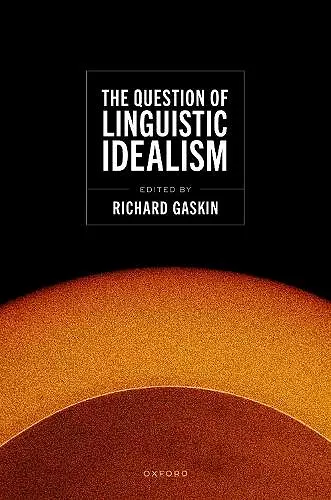The Question of Linguistic Idealism
Format:Hardback
Publisher:Oxford University Press
Published:3rd Apr '25
£99.00
Supplier delay - available to order, but may take longer than usual.

The chapters in this volume address the question to what extent the doctrine of linguistic idealism is coherent and plausible. Linguistic idealism, as defined here, holds that both the existence and the (very general) structure of the world are in some sense dependent on the existence and the structure of language. The interest of the thesis is that, since human language is an evolved, empirical phenomenon, it would be surprising and significant if the world, which existed long before human beings came into being and is in many respects quite obviously independent of them, were somehow beholden to the fact that human beings can talk about it. That, nevertheless, is the claim. Much of the discussion of linguistic idealism revolves around making the definition of it both precise and interesting, whether for purposes of attack or defence. The Question of Linguistic Idealism opens with an introduction that presents a general argument for linguistic idealism and examines the way in which that position figures in the writings of Ludwig Wittgenstein and Elizabeth Anscombe. The authors in this collection cover a wide range of possible approaches to linguistic idealism. Some support the position in one version or another; others are hostile. All the contributions are both historically aware and engaged with systematic considerations, but in some the emphasis is placed on historical aspects of the problem-here the focus is particularly on the writings of Kant and Wittgenstein-whereas others adopt a more systematic approach. Each philosopher addresses their chosen aspect of the general topic in (broadly speaking) metaphysical terms, but the bearing of modern linguistic theory on the thesis of linguistic idealism, as well as its connections with mathematical results and practice, play a role in some of the contributions as well.
ISBN: 9780192872654
Dimensions: 240mm x 160mm x 25mm
Weight: 652g
336 pages